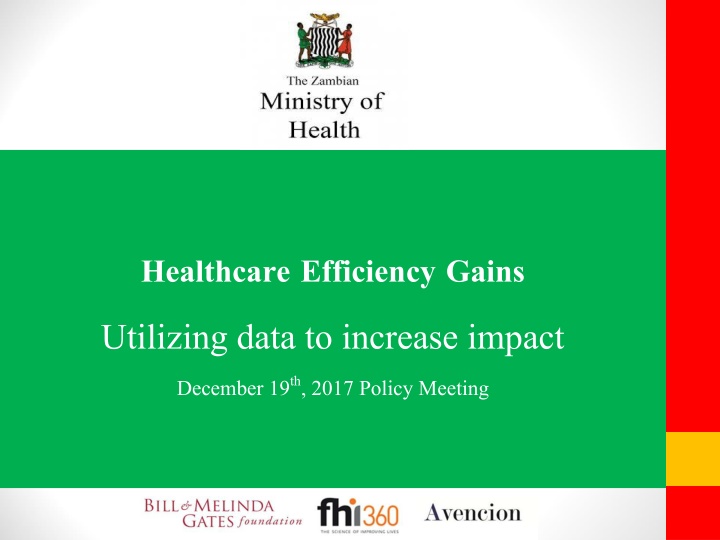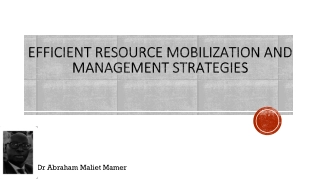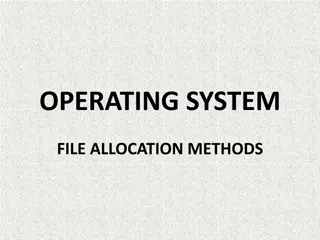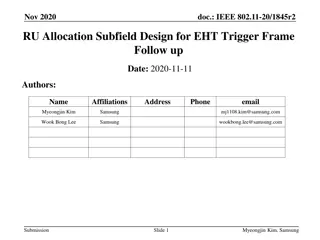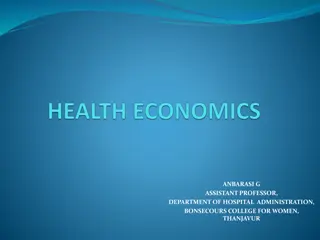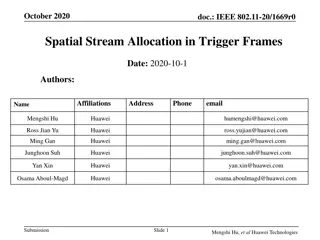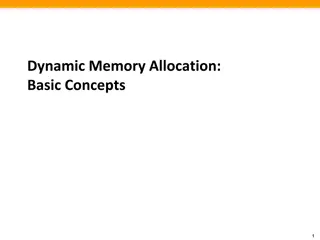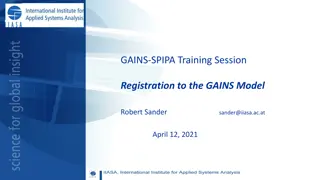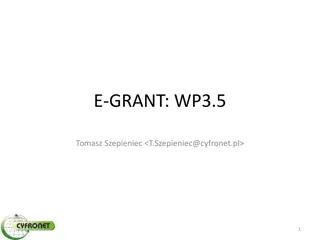Healthcare Efficiency Gains: Utilizing Data for Impactful Resource Allocation
As part of increasing efficiency, the Ministry of Health has developed the Routine Efficiency Monitoring System (REMS) to enable evidence-based decision-making and efficiency analytics. REMS leverages data from existing health information systems to monitor financial resource inputs and health outputs, facilitating improved resource mobilization, allocation, and cost identification for social health insurance pricing.
Download Presentation

Please find below an Image/Link to download the presentation.
The content on the website is provided AS IS for your information and personal use only. It may not be sold, licensed, or shared on other websites without obtaining consent from the author.If you encounter any issues during the download, it is possible that the publisher has removed the file from their server.
You are allowed to download the files provided on this website for personal or commercial use, subject to the condition that they are used lawfully. All files are the property of their respective owners.
The content on the website is provided AS IS for your information and personal use only. It may not be sold, licensed, or shared on other websites without obtaining consent from the author.
E N D
Presentation Transcript
HealthcareEfficiencyGains Utilizing data to increase impact December 19th, 2017 Policy Meeting
Executive Summary As a part of increasing efficiency and smart resource allocation, the MoH has developed the Routine Efficiency Monitoring System (REMS), an innovative expenditure analysis and efficiency monitoring system: REMS brings together data on financial resource inputs and corresponding health outputs, enabling routine efficiency monitoring at the point of care Leverages data from existing health information systems into an integrated user- friendly dashboard REMS provides evidence-based decision-making expenditure analysis and efficiency analytics
Ministry Led Innovation: Routine Efficiency Monitoring System (REMS) enables: New data-driven decision making capabilities New tool for planning and public health expenditure analysis Increases in efficiency Improved resource mobilization and allocation Identifies underlying costs to guide social health insurance pricing IFMIS* Health Service Financial Data Routine Monitoring System DHIS2 Health Service Delivery Data Routinely generated information on performance and efficiency of facilities *IFMIS Integrated Financial Management Information System
REMS increases efficiency REMS gives users the opportunity to do comparative checks and help identify outliers across provinces, districts and facilities which builds a basis for intervention. Having these analytical capabilities through REMS informs the design of technical support programs to address inefficiencies and strengthen best practices.
REMS helps MoH better allocate resources REMS provides total and unit costs for HIV health services Provide a basis for resource allocation and prevent wastage Enables routine workload estimates per facility which support resource allocation for hospitals Generating benefits package costs for national health insurance
Whats Next? Expand REMS from the current 326 facilities, 17 districts and two provinces; to all ten (10) provinces and all districts Include partner resources in system so we have full estimate of the true cost of care and to identify activities which compliment or duplicate efforts Expand beyond HIV/AIDS services Link to other eHealth systems
Funding for Two-Year Efficiency Scale-up (in US$ million) Components Cost Component 1: Expanding of program to RMNCH, Malaria, TB, other priority services across ten provinces and integrate across partners / systems 1.1 Expand REMS to national-priority services and geographies 5.5 3.5 1.2 Integration of routine partner resources 0.5 1.3 Integration of eHealth systems (ie supply chain and aggregated electronic medical records) Component 2: Strengthening utilization of integrated health and expenditure data for decision making and health delivery 2.1 Training and enhanced data driven decision capacity for district, provincial, national and facility-level staff , deployment and institutionalization of REMS at functional levels (Provincial Planning, Program Planning, Results Based Finance and Results Based Reporting) Total Funding Required 1.5 2.0 2.0 8 $7.5m USD
We want to share. For more information contact Andrew Kashoka at andrew.kashoka@MOH.gov.zm or Dr. Anita Kaluba at dranitakaluba17@gmail.com
